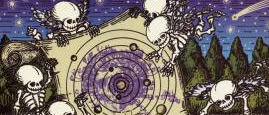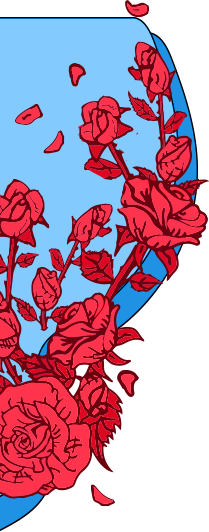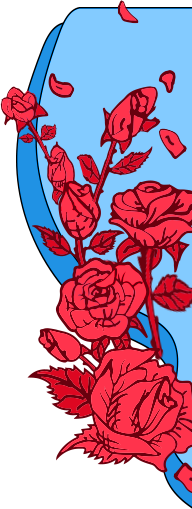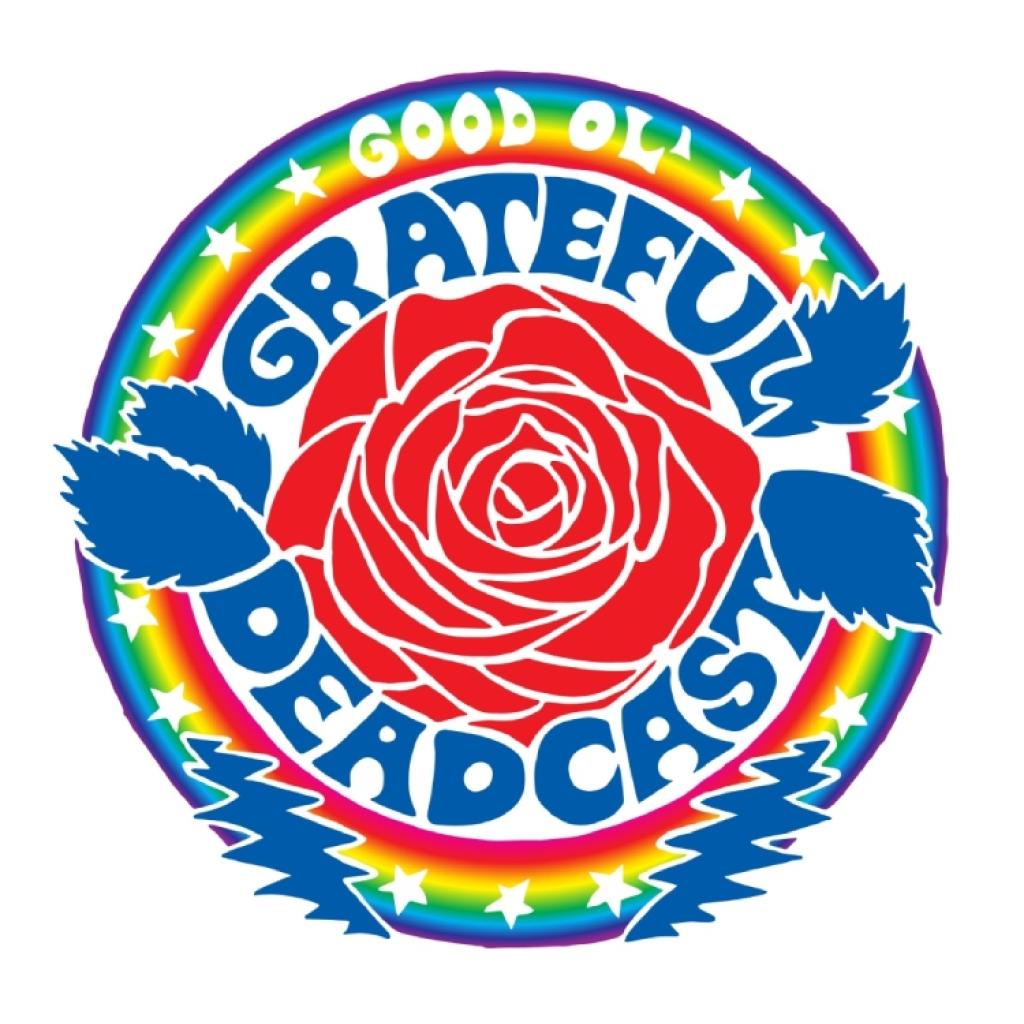In which the Grateful Dead make landfall on the Continent, do battle with Danish customs, play on the 1st live rock telecast in national history, perform in a university cafeteria, visit Hamlet’s castle, cross paths with a countercultural hero, wear clown masks, & get cool sweaters.
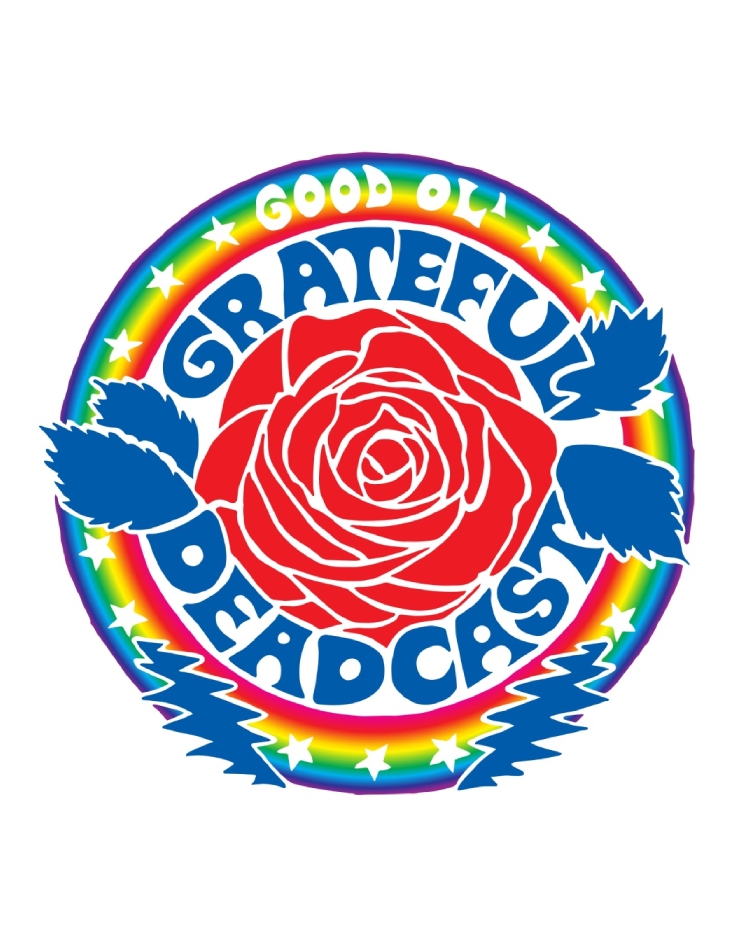
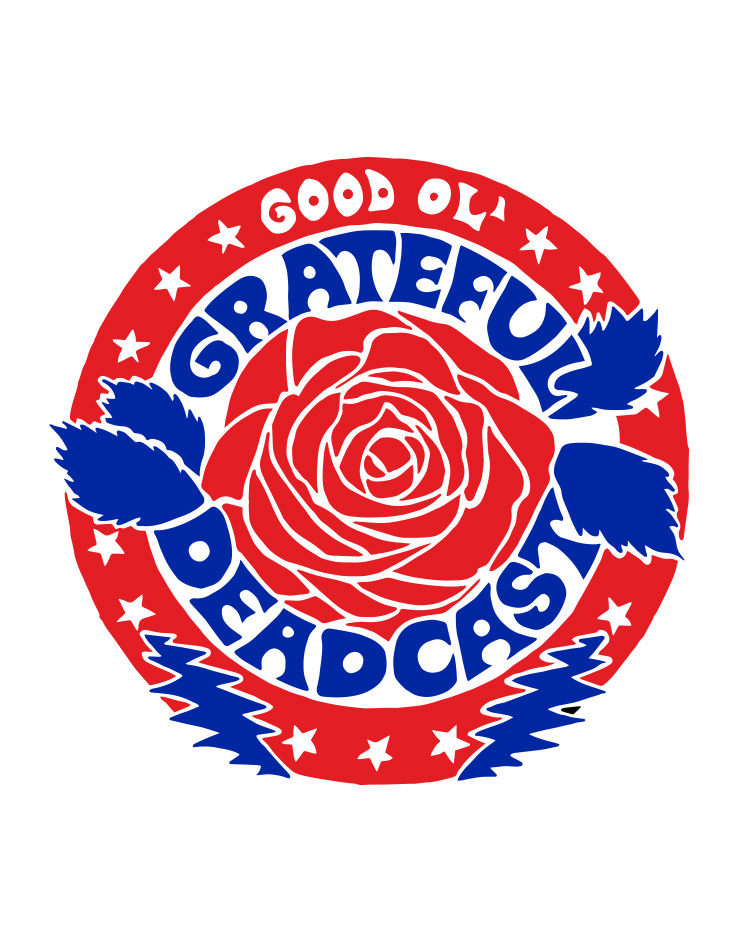
by Jesse Jarnow
The Dutch photographer Gijsbert Hanekroot–a guest on this Deadcast–met the Grateful Dead as they arrived in Denmark from London, on assignment from the underground newspaper Oor. He photographed the band during the first performance at the Tivoli Concert Hall on 14 April and, the next day, accompanied them to Kronborg Castle, the inspiration for Elsinore in William Shakespeare’s Hamlet. There, he photographed Jerry Garcia for the cover of Oor, an image often misidentified as being shot in Copenhagen. Many of his Dead photos can be seen in a gallery on his site, and he sells prints of both his portrait of Jerry Garcia at Kronborg, as well as a shot of Garcia on stage.
Dick Latvala wound up with a handwritten set of Robert Hunter’s “Brown Eyed Women” lyrics, rediscovered by fans after Hunter’s death. Based on the early lyrics sung by Jerry Garcia, they are probably not a first draft.
As always, enormous thanks to David Gans for sharing interviews with members of the band and their family over the years. His books Conversations With the Dead and This Is All A Dream We Dreamed (with Blair Jackson) are available in signed editions via perfectible.net.
In Copenhagen, the Danish writers Dan Turèll and Peder Bundgaard interviewed Jerry Garcia for the Danish publication MM. Over the ‘70s and ‘80s, Dan Turèll would become one of the most famous writers in Denmark, their most preeminent countercultural voice. And he would remain a Dead fan through the rest of his prolific life. WIth the help of Dan Turèll biographer (and Deadcast guest) Lars Movin, we’ve translated the interview back into English. Many kind thanks to Lars Movin, and to Chili Turèll and Peder Bundgaard for permission to publish this material.
Jerry Garcia, Grateful Dead - an interview
originally published in MM #2, May 1972
Peder Bundgaard and Dan Turèll talk to Jerry Garcia from Grateful Dead at Hotel Nyhavn, the morning before the group's concert on April 14, 1972.
Dan Turèll: Jerry, about the togetherness, in many ways, it seems as if the rock scene is more and more in disarray now. How do [the Dead] manage to both maintain and tigthen a togetherness that you do not see elsewhere?
Jerry Garcia: Yes, all I can say is that we have only taken care of our own survival, right?--at a very basic level--our opportunity to survive, as a group, as a family. We have dealt with our own scene and the changes in it, rather than reacting to what was going on outside. In other words, we fantasized about a different reality. All it takes to create another reality is for people to live in it; I mean, we never recruited people. The whole story just happened, and along the way, we decided to concentrate on our own reality and forget all the crap to survive. And here we are then, in relative unity, in the midst of all the madness of the world. I've thought a lot about it, I've seen it in a lot of different ways over the last six years, comparing what's happened to us and our scene to everything that's happened. It doesn’t really fit together in any way, and whatever makes Grateful Dead run, it's not something that depends on me. It’s something that’s continuous.
Peder Bundgaard: With the same musicians - exactly the same as in 1966 -
JG: Yeah, and more than that. Lots of people in our scene, we’ve known for a long, long time, long before we were a rock 'n' roll band. It’s our own reality, based on our own experiences. We don’t respond to the press or television, but to our own society.
PB: Do you always travel together?
JG: No, we can’t normally afford it. It can only be for the musicians, the light people and the technicians, the rest of the family stays at home and takes care of the office. We simply don’t have the money for it. But this time, by chance, some money came in very luckily and we got an agreement to record a double LP for Warner Brothers along the way. We could have come to Europe last year, and even before that, but we waited until we could all come. And now we're here, it's all running so fine at the moment.
DT: It also seems like you've got a lot of new energy, more and more, in recent years.
JG: Yes, more energy and more space to channel it into. There really are no limits to energy, we are simply in such great shape. Everyone is just in the right state.
DT: It's also as if the music is more and more evolving into one mass for you, to be the expression of everything.
JG: I think that the fact that music will soon the primary means of communication in the United States is due to the language is getting so weird, English being wiped out by television politicians, all these words and statements, "generation gap" and “alternative culture,” media expressions and all that shit. The language finally becomes meaningless, there is only mistrust left to that concept. The music communicates on a more basic level, I think, but I don’t really know. It could seem like there is a break-down happening, maybe, but things are still running. What has not happened is that the System has changed. There’s still no space where the new consciousness can express itself.
DT: Shouldn't the new consciousness be able to express itself anywhere?
JG: Yes.
DT: Shouldn't that be exactly what the new consciousness does?
JG: Right; that's what we do, right? But there has not yet been any way to throw out the old shit. It's too strong, right? Just take governments; what should a new consciousness be able to do in governments? Who wants to be a politician, who is interested in that? It's still running straight, right? In Berkeley, for example, there are a handful of political radicals. They can do little to change the ordinary course of Congress, not much.
DT: Do you think the new consciousness is beyond politics? That it will transform politics everywhere?
JG: I hope something along those lines. Again, I don’t know. Most of my energy and interest goes into our scene, it's the one I see reality through. And our scene is going well, man. I mean, we're here, 43 people, touring Europe -- a completely unrealistic fantasy in the music world, impossible? But we are here. And we are here only because there are friends who support us along the way. I mean, we don’t survive in a vacuum, we receive new energy and transform it.
DT: So it can be transformed again -
JG: Right. We would like the Grateful Dead to be a channel that the energy can go through, just pure energy. This is how it’s been running all along. If someone comes and wants to join, if they have a way they can transfer their energy over to us, if we can transfer ours to them, that's the way, right? It's good for them, for us, for everyone. That's the way we’ve become the 43 or whatever it is, we are now. Like just lately with the new pianist and our new singer. There is no easy and quick way to reach the goal.
PB: There were probably many who believed that in 1967.
JG: Yes, but we’ve learned that is not the case.
PB: You lived together in Haight-Ashbury. Seen here from Copenhagen, for example, it really looked like a brilliant scene. We've heard so much about it and all that. One could get the impression that anything was possible.
JG: That's the shame still. It's just that now that innocence is gone. There’s not the same fresh, young hope. We’ve become both older and wiser. It still moves, but things evolve in periods. There may be periods of 10, 20, 30 or 100 years. Anything is really possible and the Dead Family still lives together. Where we live now, outside of San Francisco, there is a whole community of people from the Haight-Ashbury scene. There are poster designers and so on. Everyone is very creative and a swift little renaissance is actually happening. Something is happening all the time, but of course the world doesn’t change in an instant.
DT: You talked yesterday about the fact that substances could be used to enter the universe instead of using them to escape from the world. The music can be used in the same way so that it simply goes in advance.
JG: Things are simple. They’re not complicated, they’re just not easy to perform.
DT: It's hard to see how simple things are. You talked about all the big buildings in connection with the press, the media, the universities and all that stuff. You can just tear it out. It's simple enough because things are really interconnected in a simple way.
JG: Yes, that's right. I just don’t want to be the one to say that to people. I won’t be responsible for what they’re thinking.
DT: You do not need that either. But there is always someone who says something. It is a matter of taking advantage of your opportunity to say something. If you do not, there will always be someone else telling them something else.
PB: One could imagine some responsibility for not saying anything.
JG: Yes, one can’t avoid becoming responsible in some way. I'm fully aware of that, I just don’t want under any circumstances to be misleading to anyone. It is a waste of time. You send people on a strange trip with that kind of thing. There are a lot of things that can’t be preached. That's what I want to avoid. Imagine if I suddenly stood up and said: “Listen to me. The universe is an egg!” It may well be that the universe is an egg, but even if I had seen it with my own eyes, I would still never say it to anyone. I might tell people something about walking around the block -- turning right, then left, then turning three times around themselves after which there MAY be a door to heaven. Do you understand what I mean? I want to help people do something to get there themselves. I don’t mind being a kind of guide that people can use. I don’t want to hide what I may know, but I certainly don’t intend to mislead any one. That is something I’m thinking quite a lot about. I once expressed an opinion in an interview a long time ago. Then it happened that two years later I met a guy during a tour. He fully and firmly believed in it because I had said so.
PB: It could be the magazine's fault. They may have changed your words and things in print can easily get a false authority.
JG: That's right and I'm always on the lookout for that little trip. There is always a feedback, namely a feedback from real life. I am trying to avoid having people come running up to me and say: “You promised such and such. You said it would all be magnificent.” Why should I know more than others about what’s happening?
DT: No, but you are part of what is happening, and when what is happening is you, you can still hardly avoid being part of leading someone.
JG: I can see that, but I have no special place to guide anyone to.
PB: Now you play the guitar. That way, you can express your feelings and thoughts very accurately and still not be misleading.
JG: Exactly. Even if I'm really supposed to be misleading, it's nothing but music after all. I've experimented a lot with it. We've been playing together for about seven years now. During that time I have been to all the concerts with the Dead. Every single one. On stage, I’ve been through all sorts of different consciousnesses. I have been angry and depressed. I have been completely out of my mind strange substances and I have been high on acid. But the music as a whole has been good nonetheless. There is something greater than me. I am me and that is it. But I'm into it, I'm plugged into it. Everyone is plugged in. That's why it happens every time, even when I'm playing like an asshole. "It" is bigger than all of us.



